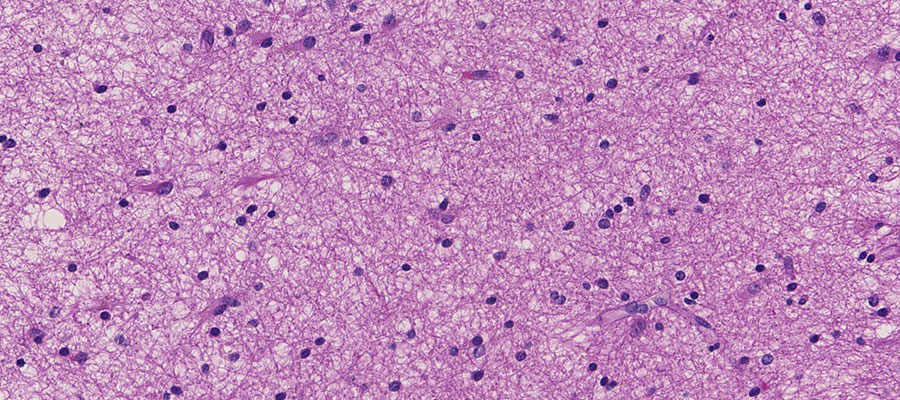Largest trial ever performed in alveolar soft part sarcoma: results published
8 Dec 2017
EORTC 90101 “CREATE” phase II trial on the activity and safety of crizotinib in patients with alveolar soft part sarcoma with rearrangement of TFE3 is published in the Annals of Oncology (1). EORTC 90101 “CREATE” is a multi-tumour, prospective phase II clinical trial evaluating the efficacy and safety of crizotinib in patients with advanced tumours driven by MET and/or ALK alterations. CREATE included six disease-specific groups, and this paper reports on the results of the independent alveolar soft part sarcoma (ASPS) cohort.
ASPS is a rare soft tissue sarcoma (STS), generally developing in young patients. This disease is characterized by very early metastatic spread. ASPS is known to metastasize to sites such as brain, lung, lymph nodes and bones. In patients with advance, inoperable or metastatic disease traditional systemic therapy and radiotherapy have failed to demonstrate significant advantages in survival. The tumour is characterised by the ASPSCR1-TFE3 fusion gene, which plays a critical role in the development of ASPS as it induces an overexpression of the MET gene that encodes the MET receptor tyrosine kinase, which is considered to be an important driver of this disease. Crizotinib (Xalkori®, Pfizer Inc.) is a small molecule targeting MET, anaplastic lymphoma kinase (ALK), and ROS proto-oncogene-1 receptor tyrosine kinase (ROS1). The drug is routinely used in adult patients with non-small cell lung cancer. Its mechanism of action is to interfere with the MET pathway by inhibiting adenosine triphosphate (ATP) from binding to the receptor.
In this study, 53 patients were enrolled, of which 45 patients were eligible. The patients were stratified to MET + or MET- groups and treated with oral crizotinib at a dose of 250mg twice daily. Among 40 MET+ patients, one achieved a confirmed partial response for 215 days and 35 patients had stable disease (SD). Further efficacy endpoints in MET+ cases were a Disease Control Rate of 90.0%, a 1-year Progression Free Survival rate of 37.5% and 1-year Overall Survival rate rate of 97.4%. The most common crizotinib-related adverse events were nausea, vomiting, blurred vision, diarrhoea and fatigue. The study demonstrated that crizotinib was active in TFE3 rearranged ASPS patients, when considering standard efficacy endpoints for early sarcoma trials developed by EORTC.
“In terms of number of treated patients, this is the largest prospective trial ever performed in ASPS,” said Professor Patrick Schöffski, Principal Investigator and Head of Department of General Medical Oncology, Leuven Cancer Institute, University Hospitals Leuven. “Furthermore, I think that the long-term follow-up of this trial, with very mature overall survival data, will serve as an important reference for all future clinical studies in this setting.”
(1) Activity and safety of crizotinib in patients with alveolar soft part sarcoma with rearrangement of TFE3. European Organization for Research and Treatment of Cancer (EORTC) phase 2 trial 90101 “CREATE”. P. Schöffski, A. Wozniak, B. Kasper, S. Aamdal, M. G. Leahy, P. Rutkowski, S. Bauer, H. Gelderblom, A. Italiano, L. H. Lindner, 0. I. Hennig, S. Strauss, B Zakotnik, A. Anthoney, L. Albiges, J-Y. Blay, P. Reichardt, J. Sufliarsky, W.T.A. van der Graaf, M. Debiec-Rychter, R. Sciot, T. Van Cann, S. Marreaud, T. Raveloarivahy, S. Collette, S. Stacchiotti. Annals of Oncology.
Related News
EORTC: Advancing research and treatment for rare cancers
29 Feb 2024
EORTC Fellowship Programme: celebrating more than 20 years of impactful collaboration
22 Feb 2024
Appointment of Malte Peters as EORTC Strategic Alliance Officer
9 Feb 2024
Unique series of workshops in partnership with the European Medicines Agency (EMA)
7 Feb 2024
EORTC launches a prominent clinical trial in older patients with locally advanced (LA) HNSCC (Head and Neck Squamous Cell Carcinoma)
14 Dec 2023
Seven IMMUcan abstracts selected for ESMO Immuno-Oncology Congress 2023
6 Dec 2023
EORTC Quality of Life measures integrated in CDISC
20 Nov 2023
EORTC and Immunocore are collaborating to launch the ATOM clinical trial of tebentafusp in Adjuvant Uveal Melanoma
7 Nov 2023
Treatment with decitabine resulted in a similar survival and fewer adverse events compared with conventional chemotherapy in older fit patients with acute myeloid leukaemia
31 Oct 2023
New results and forthcoming EORTC trials in rare cancers, lung, head and neck, and breast carcinomas presented at ESMO 2023
20 Oct 2023


